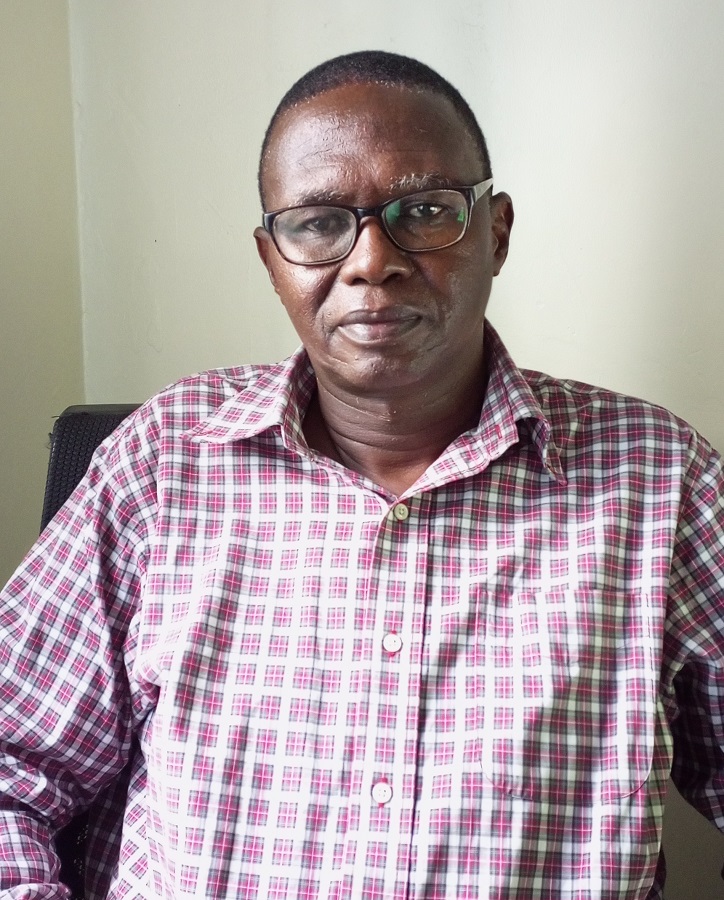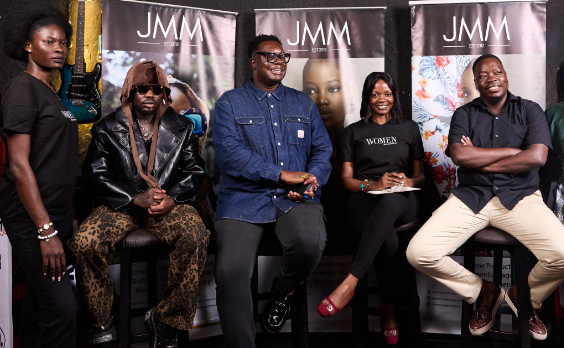EXCLUSIVE INTERVIEW: Nathan Magoola speaks out on career making films, industry potential and challenges like piracy
Nathan Magoola is a self-made film maker who has brought us movies like Bobi Wine’s Divisionz, Felistas Fable and television drama Prestige currently showing on Pearl Magic Prime.
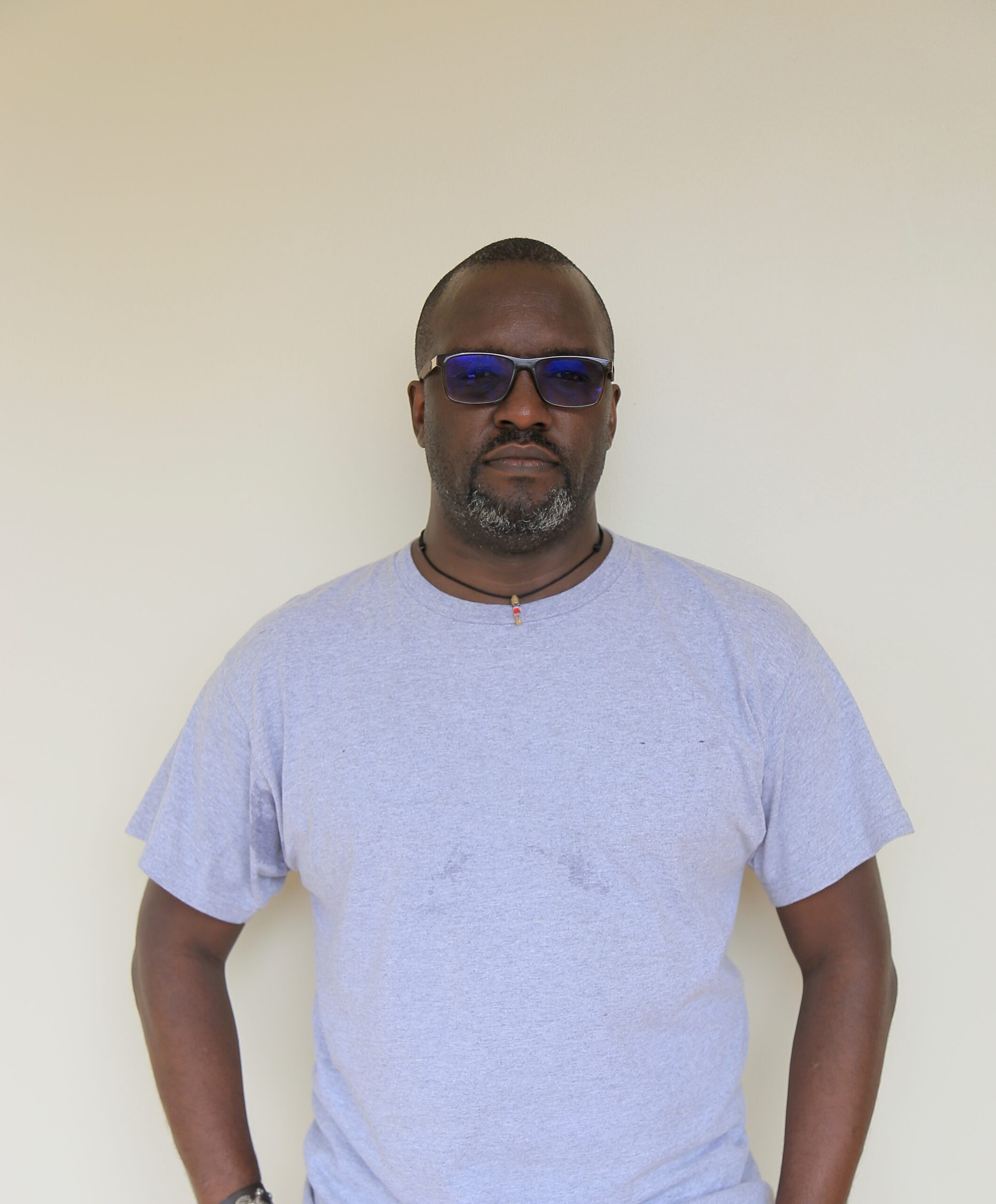
The film industry in Uganda has undergone a transformation and one person who has been a part of this is Nathan Magoola. In this interview with Charmar News editor Baz Waiswa, Magoola tells his story and prospects of the film industry in Uganda.
Below are excerpts from the interview.
A look around the internet, one gets the impression that you are a knowledgeable film enthusiast and maker; how did you get into filmmaking to extent of winning awards?
I have been interested in filmmaking all my life. The thing that I was first interested in was making music videos. Many people don’t see music videos as a form of storytelling, but it is so.
People who do music videos are like the people who do commercials. So I gravitated towards commercials. For a very long time, I was making my living writing commercials. That was a way for me to train myself.
But then, on the side, I was doing my films. I couldn’t support my family just by making films. I was making my living from the commercials. Whatever I was making from the commercials, I was using to train myself; gathering skills in filmmaking.
So I decided that I was going to seek as much knowledge as I could about being a film producer and for very many years, every couple of months, I was taking trips to Europe to gain those skills.
What are some of the works you have done in terms of filmmaking?
I was one of the producers of Divisions; that film that had Bobi Wine in it back in the day. Then I produced another film called Felicitas Fable, which came out around 2013.
I also did a couple of short films. Most of the films that I’ve worked on have been films that are funded from abroad. My job is just to make the film here and then give it to them (the funders).
But for the last three years, I’ve been producing a daily drama TV series called Prestige showing on Pearl Magic Prime. So far, we’ve done over 460 episodes.
And then right now, I’m in preps for another TV show, also a daily TV drama series called Suubi.
The film industry is getting recognition at the moment, at least going by the quality of local film festivals and the international acclaim Ugandan films are getting, what has changed when you compare it to about fifteen years ago?
If you compare now to 10 years ago, a lot has changed in terms of accessibility to the equipment. Right now people have access to high-quality equipment.
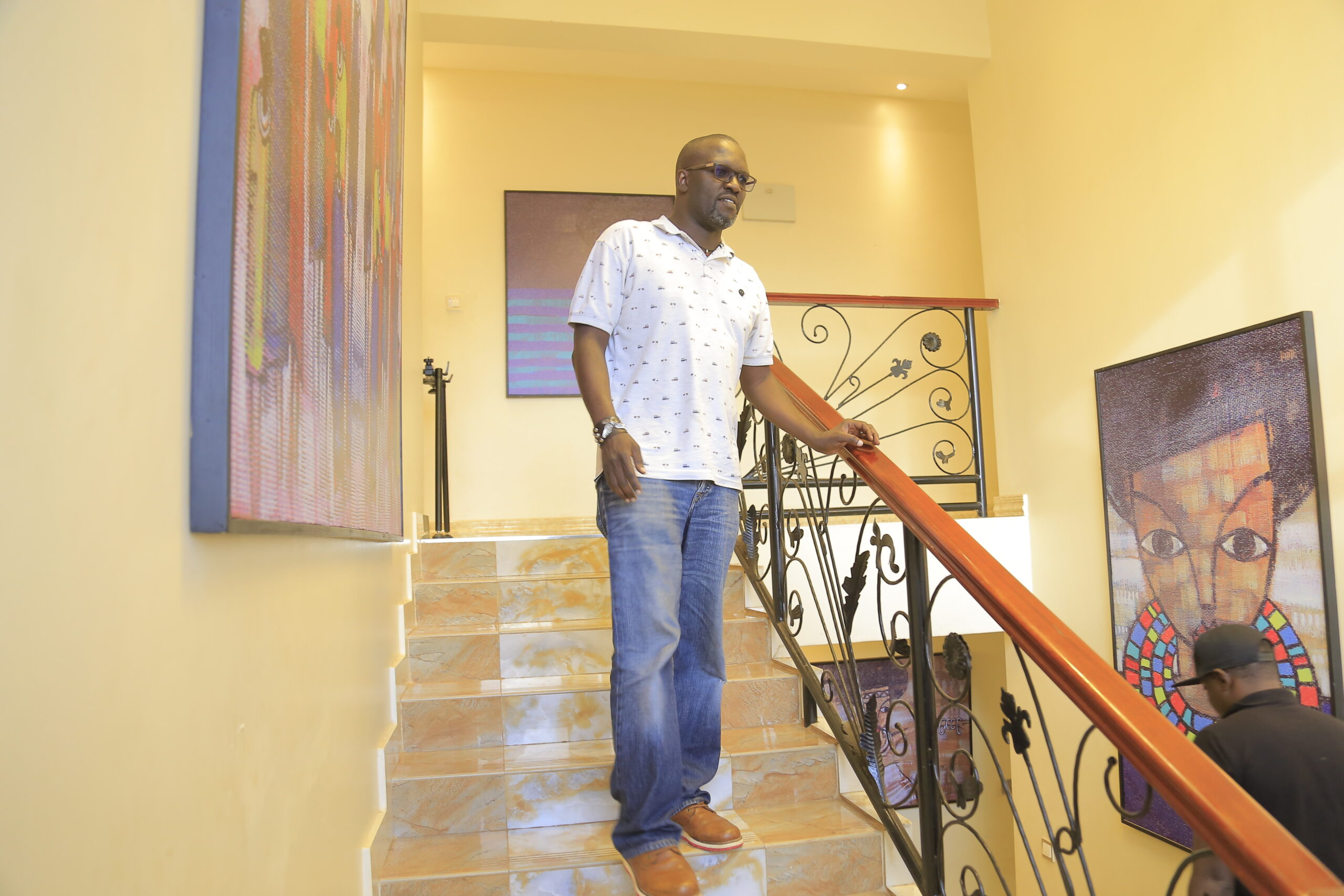
You find that the equipment that people are using to make films in Hollywood is the same equipment that people have here.
The quality of the films comes from the fact that in Hollywood they have filmmaking training and they have money to hire world-class talent.
Hollywood has been making films since maybe 1911 and then, for us, we’ve just started. So you can’t compare the experience that they have and the experience that we have.
Are you saying we need more than just acting?
In terms of acting, I feel like we don’t lack talent. A few years ago, they did a film here, Queen of Katwe that has Oscar nominee Lupita Nyongo acting with Ugandans who haven’t been anywhere.
The fact that these people can be on the screen beside the Oscar winners is a testament that in terms of acting talent, we have. What is lacking are the writers and technical people – the crew.
Most film schools are mainly focusing on the theoretical part.
In terms of script writing, for a very long time, we have been blessed with Maisha Film by Mira Nair. She used to bring in Hollywood big shots to conduct training in terms of writing. Maisha must have trained over 4000 people from the whole of East Africa. It is ironic that writing still lags.
But for a very long time, people just couldn’t make a living doing that. So you find that people who went through Maisha for the years it was in place quit to become wedding videographers or get involved in agriculture.
But now things are looking up and there are lots of people who are making a living in the film industry.
What would you say is the reason why Ugandans don’t consume local films?
One of the reasons is that people were getting into this filmmaking thing just out of passion. They didn’t consider commercial or business aspects.
You find that somebody is doing a film and they even have no idea who they’re making the film for.
That, and the fact that people are not making very good films are some of the reasons Ugandans give for not watching local films. No one spends money to go and see every bad film.
These inefficiencies must be coming from somewhere and are incapacitating filmmakers, what are the challenges you people in the business of making film face?
Of course, everybody’s going to tell you that there is a challenge of access to money because this is a very capital-intensive endeavour. But I just feel like, well, that’s a problem.
But for me, I just feel like, you know, the biggest challenge is skills. We don’t have a lot of skilled people. For example, if you need an editor or a cinematographer, if you can get access to him today, then another producer will need him tomorrow.
So that’s when you realize that, actually there is a huge skills gap. When you’re watching TV, you find that they are pretty much the same actors in very different shows.
I feel that one of the biggest problems that we are facing right now is a lack of skills and talent. Then also, I just feel like the aspect of writing is lacking and I just feel like we need to kind of focus a lot of our attention on that because everything starts with the script.
We have very beautiful and good stories but then when it comes to putting them down on paper, writing them, that becomes a problem. A lot of people don’t know the structure of screenwriting. Different structures, call for different formats.
Films like Black Panther and Woman King are showing that an African story can be accepted internationally; what does it mean for African filmmakers?
When Woman King and Black Panther came out, I had a couple of my friends making noise about it because they feel like the stories are being distorted.
But for me, the way I look at it is that this is fiction. Anybody is free to make up whatever they feel like and makes sense to them. But we have had these stories for years and years and we’re not doing anything about them.
So I’m ok with somebody coming from wherever and creates something. I feel like the world is a better place with Woman King and Wakanda produced. These are our stories, we should hold on to them, but then we’re not doing anything about them.
It’s a fact that Africans don’t have money. We have the stories, but we don’t have money. So we are never going to produce these stories. If somebody else comes from wherever they’re coming from and you know, they turn these stories into global brands and everything, I’m totally fine with that.
Nigerian music has had a direct impact on how Ugandan music sounds, how much of an influence did Nigerian and Ghanaian movies have on the Ugandan film industry?
The Nollywood productions were poorly done; really terrible films. But then you wonder why people love these poorly done films. So there’s something to pick out from that bad film – a positive aspect you can take and put in your work and improve it.
Uganda attempted to collaborate with Nigeria to make films but this didn’t work out, is there room for a second attempt to collaborate?
Collaboration is always a good thing, but then, for it to be successful, it comes from a point of having a shared vision. If you are going to collaborate with a Nigerian, you need to come from a point where you are seeing the same film and the same objectives.
On the surface, collaborations are good. We are about 40 million people, so from the onset, you have a target market of 40 million people but if you work with Nollywood then you are going to get access to about 400 million people. Your market increases. Theoretically, you stand a chance to make more money and the film is seen by more people.
The collaboration has to be right. It is like a marriage. It is good to get married but when you get married to the wrong partner, and then it is hell.
Art, especially music and writers, are shaping politics and other social aspects of society, is it safe for the film industry to tread this road?
For a very long time, those two are kind of like intertwined because even when you see Hollywood when they’re making all those war films, they have to get to the military and the military equipment from the government.
The government has a say in how these stories are told. The US government is not going to give you a go-ahead, access to the Pentagon, their tankers, choppers and everything just so you can make a film where America is beaten by the Russians or Vietnamese.
From a storyteller’s perspective, sometimes the story can be so good but it has political connotations and you don’t want to collide with the government, yet you want to tell the story, where and when do you cross the line?
You have to tread very carefully because at the end of the day whatever film you make has to be classified by the government. So they’re going to look at it and they’ll be like you cannot show this film anywhere, but then you spend what, 50, 80, 100, maybe 200 million shillings to create the film.
So you find that unlike people in the music industry where you can get away with a lot, in film, it’s hard. With the musician, you go into a studio, sometimes even the studio in your own home, and then, you create whatever song you create.
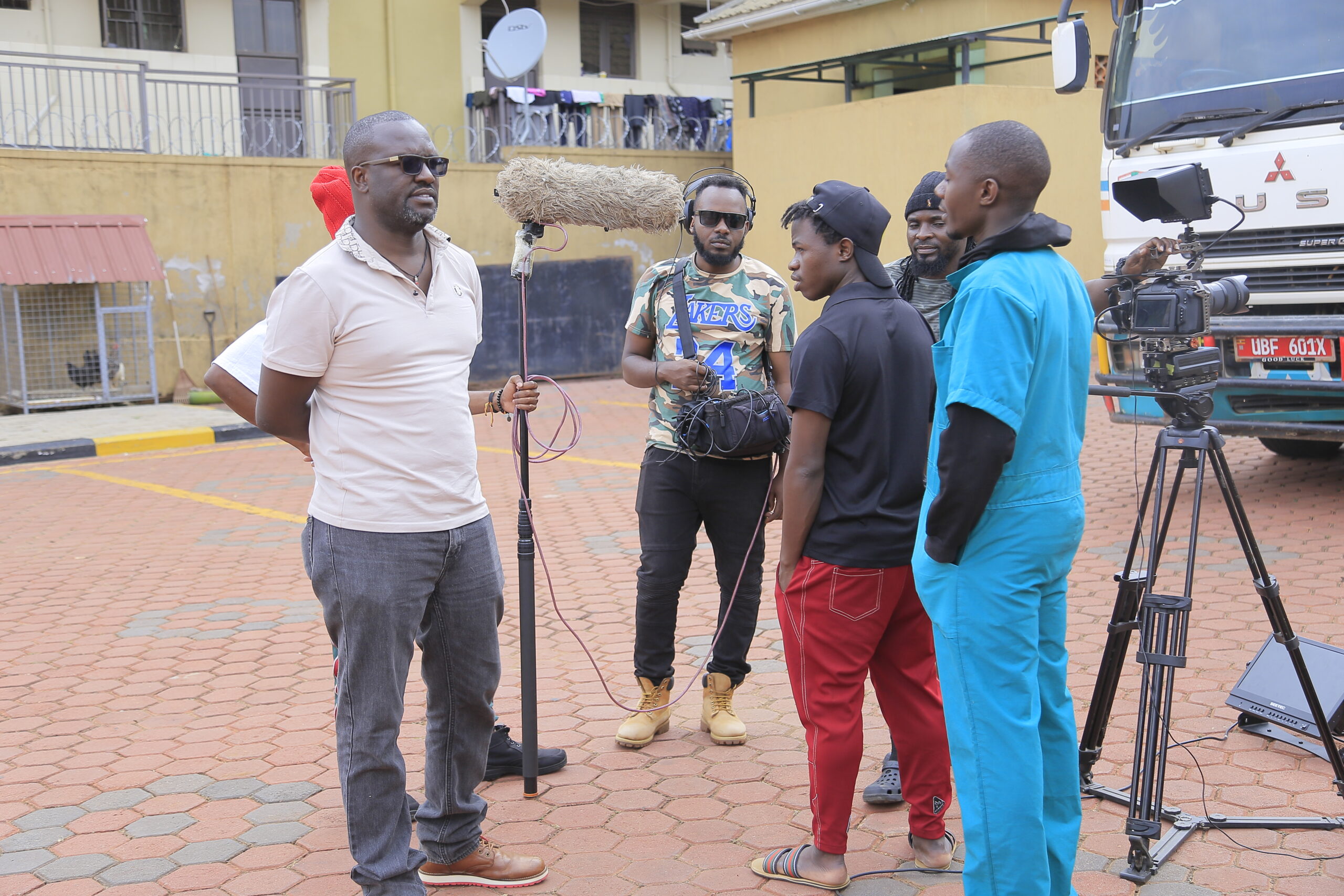
But then for me, I need a location, I need to go to a game park, I need to use the parliamentary building, I need to use the airport, all those, I need to get permission from the government. We are under so much government control.
Do you think the film industry is influencing society?
Visuals are very powerful. You know, as they say, a picture is worth a thousand words, but then if it’s a motion picture, it’s more influential. So, as a filmmaker, I know that I have a lot of power but then I have to be responsible.
People in the industry keep talking about copyrights. What is the status like for filmmakers? Is this something that bothers you?
I haven’t gone to a point where I feel it. I keep having these debates with my colleagues. I feel like of all the problems that we have, that is the least of our problems.
I know for a fact that the consumer upkeep of our content hasn’t been high; therefore, piracy can’t be a problem.
Uganda Communications Commission (UCC) started a festival where it screens Ugandan films for free for a whole week, day and night. It’s a free screening that has been heavily advertised by UCC but then you go to the cinema and you find four or five people.
I have given my film to UCC to screen at the Film Festival, and they are screening it in a movie theatre, with very comfy seats, air conditioner and everything, and only four people are watching it – so if only four people are watching the film, do I have to worry that somebody is selling that film?
What I’m saying is, if the audience is not showing up to watch this film for free, should I worry that the same audience is going to buy that film? So, to me, I feel like, that’s not the biggest problem right now.
Intellectual property is not any different from the physical property in the sense that if I have a plot of land sitting idle and then somebody comes and fences it off or starts growing stuff there, if I say nothing, nothing’s going to happen.
I specifically have to go to the authorities to report that, and then I have an intervention. So it’s kind of the same thing with copyright. You have to make reports; you have to take people to court for something to happen. If you don’t, then nothing happens.
So that’s where people kind of have a misconception that you know it doesn’t work, but it’s just because they expect it to work automatically.
And lastly, what should an upcoming filmmaker in Uganda watch out for, prepare for and expect to face seeing that the film industry is young and challenged yet has great potential?
This thing is glamorous so it’s the glamour that attracts people to it. They want to be on TV, be stars and everything. That’s so nice and dandy, but the fact is that it requires hard work, very hard and frustrating work. I think a majority of people will never make money. That’s a fact. So come knowing this reality.




